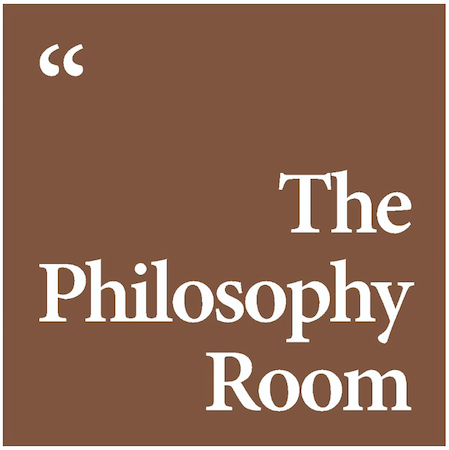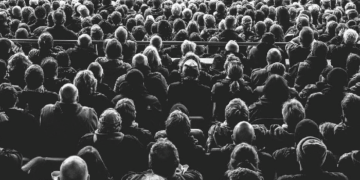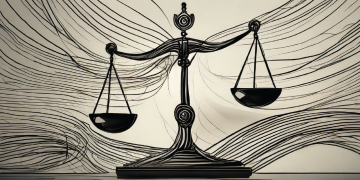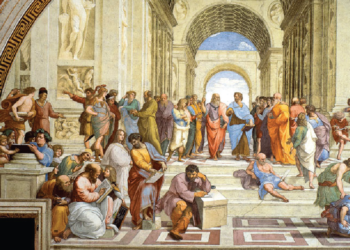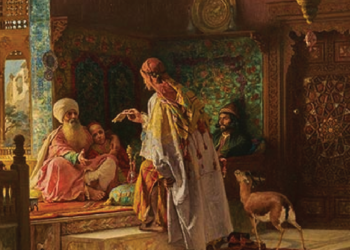Five Ecological Systems
1) The Microsystem
The microsystem is the most immediate and direct environment in which an individual lives and interacts. This ecological system, as proposed by Bronfenbrenner in his ecological systems theory, includes the relationships and activities that influence an individual’s daily life. It encompasses family, friends, school, and other settings where face-to-face interactions occur. The microsystem is unique because it represents the environments that an individual directly experiences and shapes, making it the foundation of personal development.
The family is often considered the core of the microsystem, as it is usually the first social group a person encounters. Within the family, values, beliefs, and behaviours are shared, forming the foundation for interpersonal skills and emotional stability. Positive family interactions can nurture a sense of security and self-esteem, whereas dysfunctional family dynamics can lead to emotional challenges and maladaptive behaviours. The influence of family in the microsystem is dynamic, changing with time as relationships evolve and external factors come into play.
Friendships and peer relationships are also crucial components of the microsystem. They offer opportunities for social learning, emotional expression, and identity formation. Peer interactions become especially significant during adolescence, when individuals seek acceptance and validation outside their families. Positive friendships can foster a sense of belonging and encourage healthy behaviours, while negative peer influences may lead to risky or harmful actions. The impact of peers in the microsystem illustrates the complex interplay between individual choices and social contexts.
Schools are another vital part of the microsystem, serving as a structured environment where individuals acquire knowledge, skills, and social norms. Teachers and classmates play significant roles in shaping attitudes, aspirations, and self-concept. A supportive school environment can enhance academic performance and encourage personal growth, whereas a negative or neglectful school setting may hinder development. The interactions within the school system highlight the importance of fostering inclusive and engaging educational spaces.
The neighbourhood or community also forms part of the microsystem. Living in a safe, resource-rich community can provide children and adults with opportunities for recreation, education, and social interaction. Conversely, residing in a deprived or unsafe neighbourhood may expose individuals to stressors such as violence or inadequate resources. These experiences within the microsystem can have long-lasting effects on an individual’s well-being and worldview, demonstrating how local environments can shape personal development.
Religious institutions, sports clubs, and extracurricular activities further enrich the microsystem. These settings often provide individuals with opportunities to build social connections, develop talents, and strengthen moral and ethical frameworks. Participation in such activities can boost confidence and resilience, offering a supportive network that complements the family and school environment. The diversity of experiences in the microsystem contributes to a well-rounded development process.
The quality and nature of interactions within the microsystem can be influenced by broader societal and cultural factors. For example, cultural norms and socioeconomic conditions shape the behaviours and expectations of families, schools, and communities. These influences underscore the interconnectedness of the microsystem with other ecological systems, such as the exosystem and macrosystem, which exert indirect effects on an individual’s immediate environment.
Ultimately, the microsystem plays a pivotal role in shaping an individual’s identity, behaviour, and overall development. Its importance lies in the direct, personal connections it fosters and the immediate feedback it provides. Understanding the microsystem enables a deeper appreciation of the intricate web of relationships and experiences that influence human growth and underscores the significance of nurturing positive and supportive environments.
2) The Mesosystem
The mesosystem represents the interconnections between the various microsystems in an individual’s life. As outlined by Bronfenbrenner in his ecological systems theory, the mesosystem is essentially the web of relationships between the different settings in which a person actively participates, such as home, school, and peer groups. Unlike the microsystem, which focuses on direct interactions, the mesosystem examines how these environments interact and influence one another to impact development.
One of the most significant aspects of the mesosystem is the interaction between family and school. For example, a child whose parents maintain active communication with teachers and participate in school activities is more likely to feel supported and motivated in their education. This collaboration ensures that the child receives consistent guidance and reinforcement in both settings, fostering a stable and nurturing environment. Conversely, a lack of coordination between home and school can result in mixed messages or neglect, which may undermine the child’s academic and emotional well-being.
The relationship between family and peer groups is another vital element of the mesosystem. Parents who engage with their child’s friends or monitor their social activities often contribute to healthier peer interactions. For instance, a family that facilitates open discussions about friendships and social dynamics can help a child navigate challenges like bullying or peer pressure. On the other hand, a disconnect between the family environment and the peer group may lead to conflicts, misunderstandings, or the child struggling to reconcile differing expectations.
Similarly, the interaction between peers and schools plays a critical role in shaping an individual’s experiences. Teachers who understand the social dynamics among students can create a more inclusive and harmonious classroom environment. For example, addressing group conflicts or fostering collaboration in group projects can strengthen the bonds between academic settings and social relationships. The quality of these interactions often influences a student’s engagement and sense of belonging within their educational environment.
The mesosystem also encompasses the relationship between community resources and family life. For example, families that utilise local libraries, recreational centres, or support services often create enriching opportunities for children and adults alike. These external resources can supplement family efforts in education, personal development, and well-being. However, limited access to or awareness of such resources may result in missed opportunities for growth and support, highlighting the importance of community connections in the mesosystem.
In addition to these direct relationships, the mesosystem reflects how cultural and socioeconomic factors mediate interactions across different microsystems. A family’s cultural values, for instance, may influence how they perceive the importance of school involvement or the role of peer relationships. Similarly, socioeconomic conditions can shape access to quality schools, extracurricular activities, or community resources, thereby affecting the overall dynamics within the mesosystem.
Conflict or synergy between microsystems in the mesosystem can significantly influence an individual’s development. For example, if a child experiences supportive relationships in both family and school settings, the positive reinforcement strengthens their confidence and adaptability. Conversely, tensions between these settings, such as conflicting expectations or misunderstandings, can lead to stress and confusion, hampering the child’s growth.
3) The Exosystem
The exosystem is one of the five ecological systems within Urie Bronfenbrenner’s Ecological Systems Theory, which examines how various environments influence human development. Unlike the microsystem and mesosystem, which involve direct interactions with an individual, the exosystem consists of external environments that indirectly affect an individual’s life. These are social settings where the individual may not actively participate but still experience the outcomes of decisions or events within them. Examples include parental workplaces, community resources, or governmental policies, all of which shape an individual’s environment without direct involvement.
Parental workplaces are a prime example of the exosystem. Policies and conditions at work, such as long hours, job security, and workplace stress, can profoundly influence family dynamics. A parent dealing with job-related stress might inadvertently create a tense or less nurturing home environment, affecting the child’s emotional and psychological well-being. Conversely, a workplace offering flexibility or family-friendly policies can enhance family life and provide stability, which indirectly benefits the child’s development.
Another important component of the exosystem is the availability and quality of community resources. Schools, healthcare facilities, recreational spaces, and social services all fall within this category. Though a child may not engage directly with decision-makers or administrators of these resources, their presence or absence can significantly impact their opportunities. For example, a neighbourhood with well-funded schools and accessible healthcare provides a supportive backdrop for development, even if the child never interacts with the institutions’ higher echelons.
Media and technology are modern additions to the exosystem, reflecting the way society’s advancements indirectly shape individual lives. News coverage, social media platforms, and the prevalence of technology in daily life influence societal norms and expectations, which filter down to individual behaviours and attitudes. For children, the digital age can affect their upbringing indirectly, as parents may adopt new parenting techniques or priorities shaped by broader technological trends.
The exosystem also encompasses broader social networks that influence family life and, by extension, the individual. For instance, a parent’s friends or extended family can affect household decisions, creating ripples in the child’s environment. These influences, while not direct, contribute to the overall ecology within which the individual develops.
Economic and political structures are also fundamental aspects of the exosystem. Policies related to taxation, housing, and welfare can indirectly affect an individual’s quality of life. For example, a government subsidy might enable parents to access better childcare options, positively impacting the child’s growth. Conversely, economic instability or austerity measures may strain family resources, indirectly hindering development.
It is crucial to understand that the exosystem functions as an intermediary layer between immediate surroundings and broader societal forces. Its role highlights the interconnectedness of systems in human development, emphasising how seemingly distant factors can create a cascade of effects on an individual. By considering these external influences, Bronfenbrenner’s model underscores the complexity of development and the importance of supportive societal structures.
4) The Macrosystem
The macrosystem represents the broadest layer in Urie Bronfenbrenner’s Ecological Systems Theory and serves as the overarching cultural and societal context within which all other systems operate. It encompasses the values, customs, laws, and ideologies of a given society or culture, shaping the lives of individuals indirectly through its influence on the smaller systems. Unlike the microsystem or exosystem, the macrosystem functions as a background force, embedding its effects within societal norms and structures that subtly influence daily life and human development.
One of the most significant aspects of the macrosystem is its role in shaping cultural values and traditions. For instance, societies that prioritise collectivism may encourage interdependence, strong family ties, and communal decision-making. In contrast, individualistic societies often stress personal achievement, independence, and self-expression. These overarching cultural attitudes influence how individuals are raised, the roles they adopt, and the behaviours they consider acceptable, even if they do not consciously acknowledge the societal frameworks shaping them.
The economic conditions within the macrosystem also play a vital role in development. Wealthier nations or regions tend to provide better access to education, healthcare, and social welfare programmes, which indirectly benefit individuals by creating a more supportive developmental environment. Conversely, in economically disadvantaged societies, limited resources may lead to systemic inequalities that hinder development. Economic policies, such as wage regulations or tax structures, often reflect the values of the macrosystem, impacting families and communities in profound ways.
The macrosystem also influences individuals through political and legal structures. Government policies, legal frameworks, and human rights standards all stem from the broader societal context. For example, a country with progressive policies on gender equality and education may empower women and girls to achieve greater opportunities, while a society with restrictive practices may perpetuate inequalities. These societal norms and rules, while abstract, have tangible effects on the lived experiences of individuals.
Technological advancements and globalisation are modern manifestations of the macrosystem’s influence. The spread of digital communication and the integration of global markets have reshaped cultural norms, often creating a shared, albeit complex, global macrosystem. For example, global awareness of climate change has fostered international cooperation and the adoption of sustainable practices, influencing local and individual behaviours even in distant communities.
Religious and philosophical ideologies form another significant component of the macrosystem. Belief systems often guide moral and ethical standards within a society, impacting everything from family structures to educational practices. In deeply religious societies, for instance, traditions and rituals may form a significant part of daily life, shaping the expectations placed upon individuals from a young age. Secular societies, on the other hand, may focus more on scientific or humanistic principles, framing their developmental expectations accordingly.
Social hierarchies and power dynamics within a macrosystem also determine the opportunities and constraints faced by individuals. Issues such as systemic racism, sexism, or classism often stem from deeply ingrained societal attitudes. These inequalities shape access to resources, influencing everything from educational attainment to career prospects. Addressing such disparities requires recognising their roots in the macrosystem and implementing changes at a societal level.
The macrosystem’s effects are not static; they evolve over time as societies adapt to new challenges, ideas, and circumstances. Historical events, such as revolutions, pandemics, or technological breakthroughs, can reshape the macrosystem, altering societal values and norms for generations to come. For example, the rise of environmental awareness in the late 20th century introduced sustainability as a key consideration in policy-making and individual behaviour.
5) The Chronosystem
The chronosystem, introduced by Urie Bronfenbrenner as an extension of his Ecological Systems Theory, focuses on the dimension of time and its influence on human development. This system examines how the timing and sequence of life events, transitions, and historical contexts interact with the other ecological layers to shape an individual’s growth. Unlike the other systems, which are primarily spatial in nature, the chronosystem captures the temporal evolution of both the individual and their environment.
Life transitions are a central focus of the chronosystem. These can be normative, such as starting school, entering the workforce, or retiring, or non-normative, such as experiencing a divorce, sudden illness, or migration. The timing of these transitions can profoundly impact development. For example, entering parenthood at a younger or older age than the societal norm may present unique challenges or opportunities, influencing how individuals adapt and navigate their roles. Similarly, the loss of a loved one during formative years can shape an individual’s emotional resilience and outlook on life differently than if it occurs later in adulthood.
The chronosystem also considers historical and cultural shifts, which affect entire cohorts of individuals. For instance, those who grew up during major historical events like wars, economic recessions, or technological revolutions often share distinct perspectives and behaviours shaped by their shared experiences. For example, the Great Depression influenced generations to adopt frugality and resourcefulness, while the advent of the digital age has fundamentally altered communication, education, and career paths for younger generations.
Personal agency and adaptation are key aspects of the chronosystem, highlighting how individuals actively respond to temporal changes in their environment. A person’s choices and behaviours during significant transitions can either reinforce or mitigate the effects of these events. For instance, individuals facing job displacement due to technological advancements may choose to retrain and acquire new skills, altering the trajectory of their development and future opportunities. This interplay between external events and personal agency underscores the dynamic nature of the chronosystem.
Intergenerational influences are also a vital component of the chronosystem. Decisions and experiences of one generation often ripple through subsequent generations, shaping family narratives and expectations. For example, a family’s migration to a new country may impact not only the original migrants but also their children and grandchildren, who inherit a unique cultural identity and set of opportunities shaped by this decision.
The chronosystem’s temporal perspective also includes the role of long-term trends in social and cultural norms. Changes in attitudes towards gender roles, environmental sustainability, and mental health over decades illustrate how societal shifts influence individual experiences. These transformations, while gradual, often result in profound changes in how people live, work, and relate to one another, altering developmental trajectories across entire populations.
The concept of resilience is particularly relevant in the context of the chronosystem. The ability to adapt to change, overcome adversity, and grow from challenging experiences is a testament to how the chronosystem interacts with personal traits and other ecological systems. Individuals who experience early-life hardships may develop coping mechanisms that enable them to thrive in later stages of life, showcasing the dynamic and cumulative effects of temporal influences.
